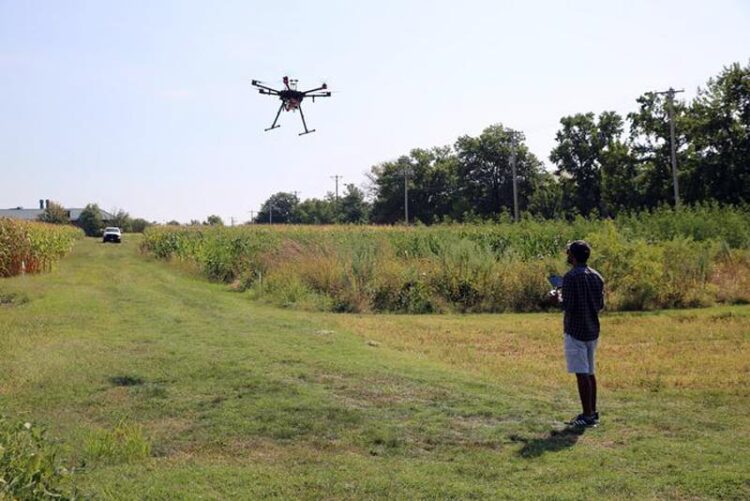Smart agriculture: Farming in the digital age

The center could help farmers be more efficient by using data-driven strategies —generated by AI — to make decisions on when, where and how much of the resources like nutrients and water are used in food production.
Credit: University of Missouri
Mizzou’s new Digital Agriculture Research and Extension Center will enhance research, education and outreach in emerging digital technologies for farming.
Nearly one-third of Missouri’s economy is tied to agriculture. That’s why the state’s flagship land-grant institution, the University of Missouri, has launched the Digital Agriculture Research and Extension Center (DAREC). The center aims to help farmers and other agricultural producers move toward a future of sustainable agriculture by leveraging emerging digital technologies and artificial intelligence (AI) for increased agricultural productivity, sustainability and profitability.
“The skills needed for today’s farmers are not the same as they were five to 10 years ago, and it’s important for us to train the next generation of farmers to adapt and make use of existing and future technologies,” said Shibu Jose, associate dean for research at the MU College of Agriculture, Food and Natural Resources (CAFNR). “This is the future of farming in Missouri and elsewhere, and people are looking to us as a proven academic leader in this space.”
Formed by a partnership between CAFNR, MU Extension and the United States Department of Agriculture (USDA) Agricultural Research Service, the center will explore key areas in agriculture such as crop production, soil health, precision livestock farming and engineering innovations through research by faculty and students, and collaboration with industry partners and agencies.
“We want to investigate the next generation of technology,” said Jianfeng Zhou, one of the center’s co-directors and an MU associate professor of plant science and technology. “For both teaching and research purposes, it’s helpful to adopt the next-generation tools designed to improve the efficiency of agriculture.”
One component of the center will be a field demonstration site located at MU’s South Farm called the MU Digital Farm. The farm will also be part of the Central Missouri Research, Extension and Education Center.
“By demonstrating new digital technologies at the digital farm, we will be able to document their benefits and use that information to show farmers and other stakeholders how to use these digital tools, many of which have already been developed but are not fully adopted yet by the agriculture industry,” Zhou said.
Adoption of any new technology takes time, and the center hopes to build trust and confidence in farmers and other stakeholders by being proactive in its education and outreach efforts.
“The Digital Agriculture Research and Extension Center will work with our MU Extension specialists to put new digital agriculture technologies into the hands of Missouri farmers,” said Rob Kallenbach, associate dean of extension at CAFNR. “The information, demonstrations, trainings and research that will come out of this center will benefit our Missouri agricultural industry for years to come.”
Leading this new initiative with Zhou will be co-directors Kent Shannon, an assistant teaching professor of plant science and technology and field specialist in ag engineering with MU Extension; and Ken Sudduth from the USDA Agricultural Research Service. The center is planning a symposium for this spring.
Media Contact
Eric Stann
University of Missouri-Columbia
stanne@missouri.edu
Office: 573-882-3346
All latest news from the category: Agricultural and Forestry Science
Newest articles

A blueprint for mapping melting ice sheets
Researchers in the Stanford Radio Glaciology lab use radio waves to understand rapidly changing ice sheets and their contributions to global sea-level rise. This technique has revealed groundwater beneath Greenland,…

Water hyacinth plant pots – utilization of an invasive species
Together with Fiber Engineering GmbH, the DITF presents a process for the production of biodegradable plant pots. The products are cost effective and competitive. At the same time, the production…

Current research on the new 6G mobile communications standard
Nursing care robots, autonomous driving, digital twins: all of these high-tech applications will play an essential role for the new 6G mobile communications standard. The first commercial 6G networks are…



